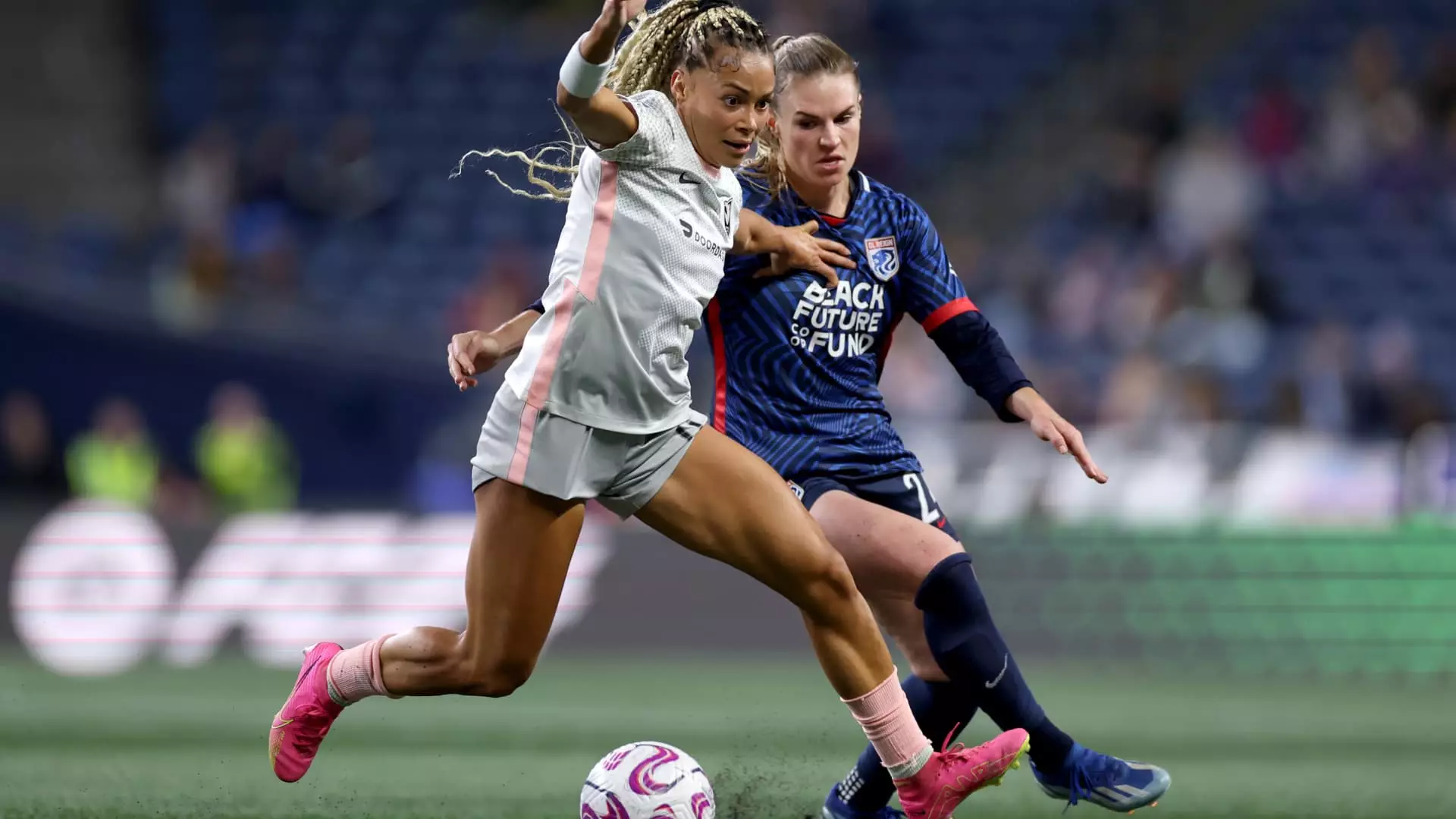The landscape of women’s soccer is experiencing a significant shift with the rise of private equity investments in the National Women’s Soccer League (NWSL). While other major sports leagues in the U.S. have allowed private equity firms to hold passive, minority stakes, the NWSL stands out as the only league that has permitted these firms to take majority control over the economics of the teams.
In a recent interview, Jessica Berman, the commissioner of the NWSL, highlighted the role of institutional capital in providing additional financial resources to strengthen the league’s assets. Notably, Sixth Street became the first private equity firm to own a team in the NWSL by acquiring the San Francisco women’s team, Bay FC, for a record-breaking $54 million. This move marked a significant milestone in the league’s evolution, setting the stage for other firms to follow suit.
The recent acquisition of the Seattle Sounders FC’s counterpart in the NWSL, the Reign FC, by Carlyle further underscores the growing interest of private equity in women’s soccer. This transaction valued the Reign at $58 million, reflecting a substantial increase from its earlier valuation of $3.5 million five years ago. The involvement of established investors like Carlyle is expected to fuel the league’s growth trajectory and enhance its commercial viability.
Private equity firms, such as Carlyle, see the NWSL as a promising investment opportunity due to the league’s rising popularity and commercial appeal. With a more than 40% increase in attendance this year, the NWSL is gaining momentum in the sports industry. Alex Popov, Carlyle’s head of private credit, emphasized the positive trajectory of the league, highlighting the potential for continued growth and development in the coming years.
Maya Mendoza-Exstrom, the chief business officer of Reign FC, emphasized that the investment by Carlyle symbolizes the intrinsic value of women’s sports. She emphasized the importance of making strategic decisions to ensure the long-term sustainability and profitability of the business. By leveraging Carlyle’s resources and expertise, the NWSL aims to enhance its operations, optimize analytics capabilities, and deliver a superior on-field product.
Deloitte projects that women’s elite sports revenue is set to surpass the billion-dollar mark for the first time, with soccer accounting for a significant portion of this figure. Unlike men’s sports, which heavily rely on broadcast rights for revenue, women’s sports revenue is driven by merchandising sales, ticket sales, partnerships, and sponsorships. The recent $240 million media deal signed by the NWSL represents a major milestone in the league’s quest for financial growth and recognition.
As private equity interest in women’s soccer continues to soar, the league faces new opportunities and challenges in navigating this evolving landscape. While the infusion of institutional capital brings financial stability and growth prospects, it also raises concerns about maintaining the league’s core values and governance structure. Commissioner Berman acknowledged the need for cautious steps in managing private equity ownership, citing the experiences of other sports leagues as valuable lessons for the NWSL.
Private equity investment in women’s soccer is reshaping the industry by unlocking new avenues for growth, innovation, and commercial success. The strategic partnerships between private equity firms and NWSL teams signify a paradigm shift in the perception and valuation of women’s sports. As the league continues to attract high-profile investors and secure lucrative deals, the future of women’s soccer appears brighter than ever, with private equity playing a pivotal role in driving its transformation and global impact.



Leave a Reply